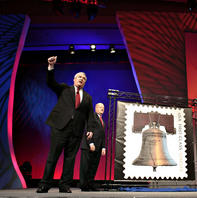(1) the 25 institutions of higher education participating in programs under this title, which have received during the previous calendar year the highest number of written notices fromm copyright owners, or persons authorized to act on behalf of copyright holders, alleging infringement of copyright by users of the institution’s information technology systems, where such notices identify with specificity the works alleged to the infringed, or a representative list of works alleged to be infringed, the date and time of the alleged infringing conduct together with information sufficient to identify the infringing user, and information sufficient to contact the copyright owner or its authorized representative; andSo universities are supposed to keep lists of allegations against their students (or staff or faculty) and those lists can be used to determine their funding. Allegations, mind you, not convictions. This is once again the entertainment industry tail wagging the dog, in this case higher education. Hm, I suppose that’s a bad analogy, since the entertainment industry seems to only understand the big head, not the long tail….— Text of Amendments, SA 2314, Congressional Record — Senate, 17 July 2007
And as if to demonstrate Republicans have no monopoly on horribly bad ideas, this amendment is proposed by the Senate Majority Leader, Democrat Harry Reid. Is the Internet really that hard to understand?
-jsq







 I may have mentioned that the telcos and cablecos seem to like to game
legal and regulatory systems in their favor.
There’s another group of companies doing the same thing:
I may have mentioned that the telcos and cablecos seem to like to game
legal and regulatory systems in their favor.
There’s another group of companies doing the same thing:
 As we’ve seen, RIAA has been pushing for
As we’ve seen, RIAA has been pushing for